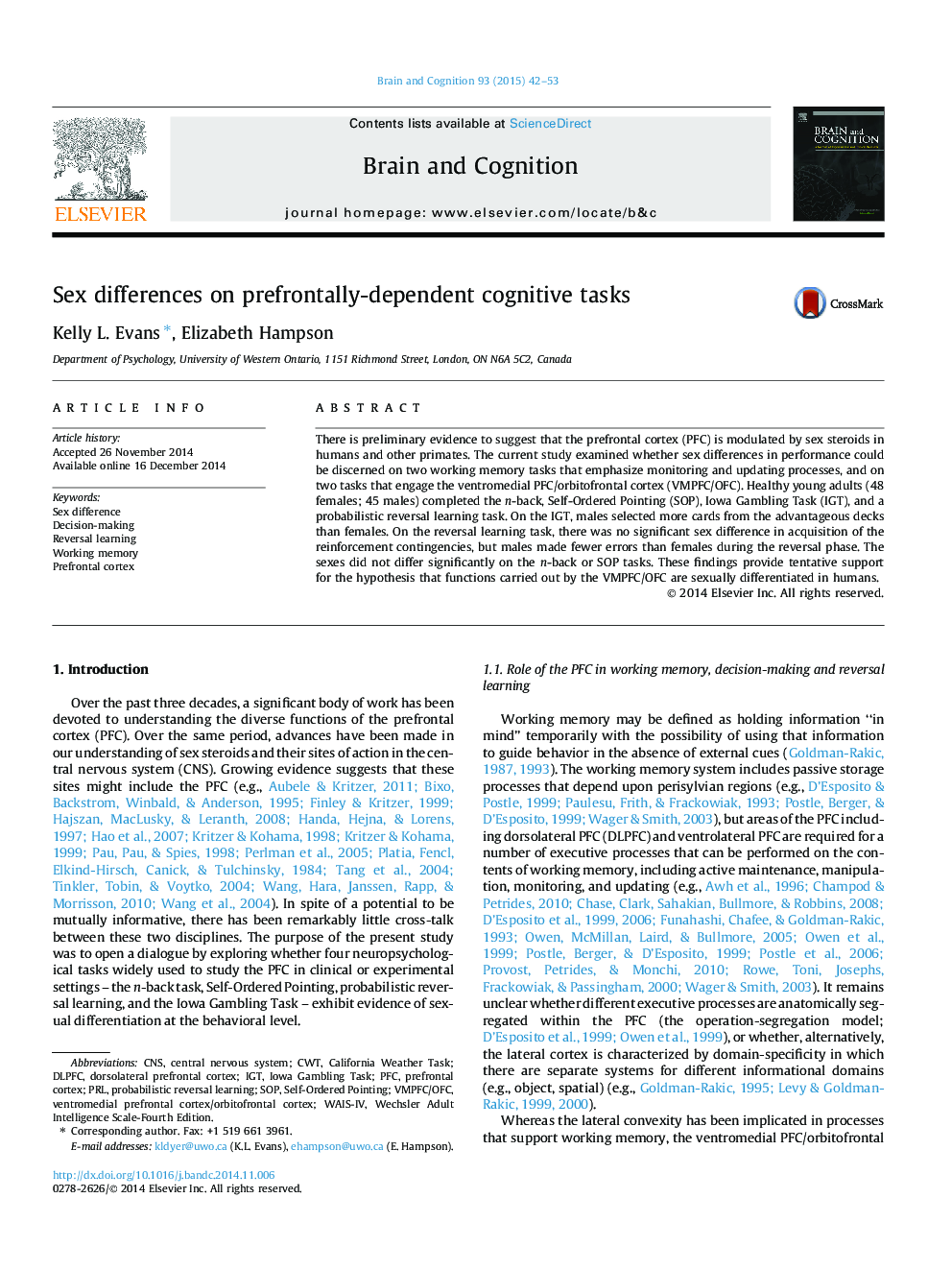| Article ID | Journal | Published Year | Pages | File Type |
|---|---|---|---|---|
| 923986 | Brain and Cognition | 2015 | 12 Pages |
•Young healthy adults were tested on four prefrontally-dependent tasks.•Males outperformed females on the Iowa Gambling Task.•Males made fewer reversal errors than females during reversal learning.•Two working memory tasks failed to show a sex difference.•Functions of the ventromedial/orbitofrontal cortex may be sexually differentiated.
There is preliminary evidence to suggest that the prefrontal cortex (PFC) is modulated by sex steroids in humans and other primates. The current study examined whether sex differences in performance could be discerned on two working memory tasks that emphasize monitoring and updating processes, and on two tasks that engage the ventromedial PFC/orbitofrontal cortex (VMPFC/OFC). Healthy young adults (48 females; 45 males) completed the n-back, Self-Ordered Pointing (SOP), Iowa Gambling Task (IGT), and a probabilistic reversal learning task. On the IGT, males selected more cards from the advantageous decks than females. On the reversal learning task, there was no significant sex difference in acquisition of the reinforcement contingencies, but males made fewer errors than females during the reversal phase. The sexes did not differ significantly on the n-back or SOP tasks. These findings provide tentative support for the hypothesis that functions carried out by the VMPFC/OFC are sexually differentiated in humans.
